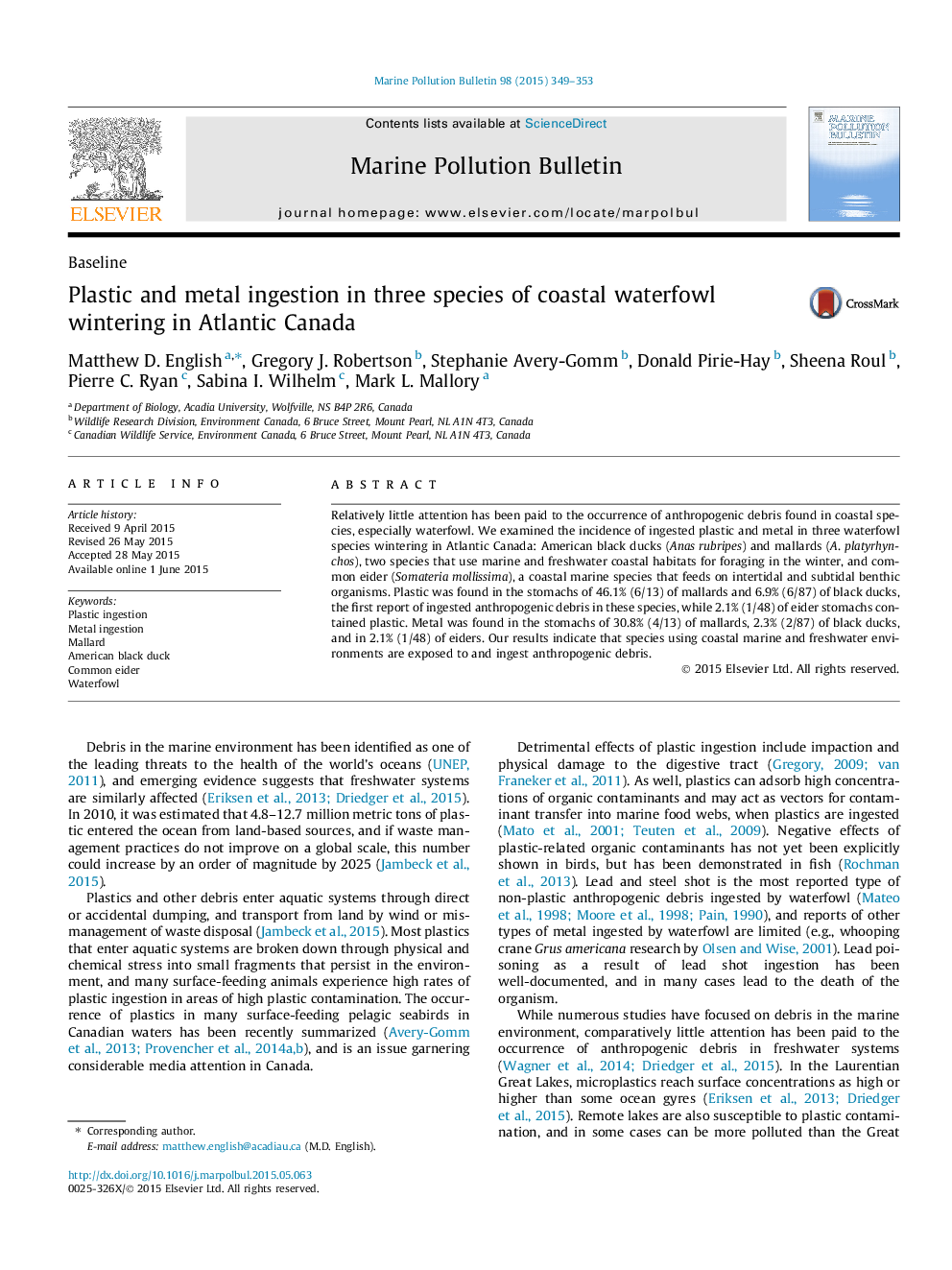| Article ID | Journal | Published Year | Pages | File Type |
|---|---|---|---|---|
| 4476729 | Marine Pollution Bulletin | 2015 | 5 Pages |
•The first report of ingested plastic and metal in American black ducks and mallards.•We provide data on plastic and metal ingestion in wintering common eiders.•Birds using freshwater environments are susceptible to ingesting plastic and metal.•No shot pellets were ingested, but other metal was ingested by all three species.•We recommend that any dietary study should look for ingested anthropogenic debris.
Relatively little attention has been paid to the occurrence of anthropogenic debris found in coastal species, especially waterfowl. We examined the incidence of ingested plastic and metal in three waterfowl species wintering in Atlantic Canada: American black ducks (Anas rubripes) and mallards (A. platyrhynchos), two species that use marine and freshwater coastal habitats for foraging in the winter, and common eider (Somateria mollissima), a coastal marine species that feeds on intertidal and subtidal benthic organisms. Plastic was found in the stomachs of 46.1% (6/13) of mallards and 6.9% (6/87) of black ducks, the first report of ingested anthropogenic debris in these species, while 2.1% (1/48) of eider stomachs contained plastic. Metal was found in the stomachs of 30.8% (4/13) of mallards, 2.3% (2/87) of black ducks, and in 2.1% (1/48) of eiders. Our results indicate that species using coastal marine and freshwater environments are exposed to and ingest anthropogenic debris.
